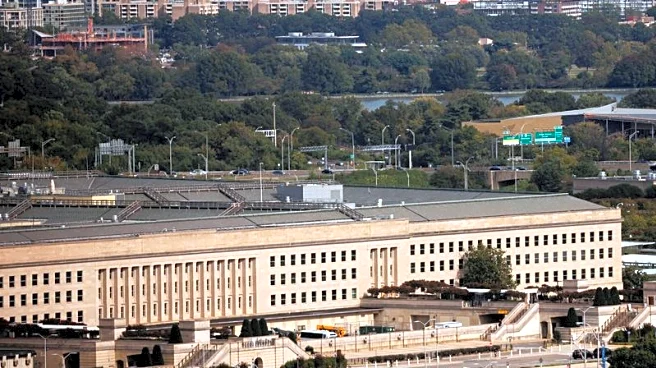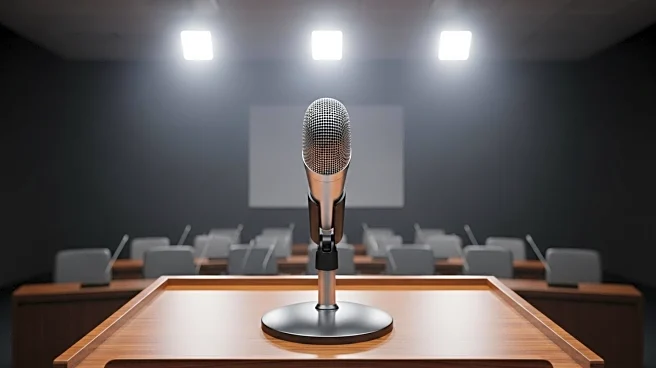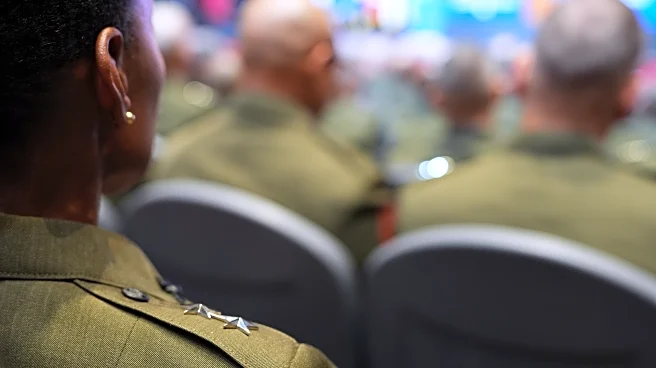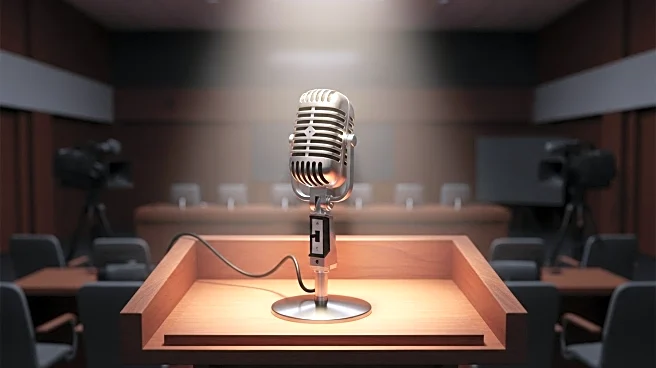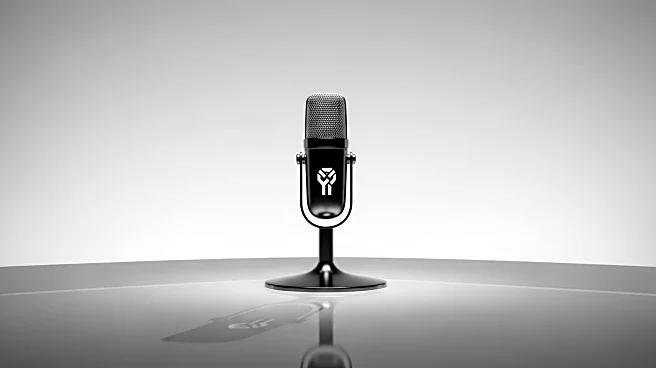What's Happening?
Several major US news organizations, including The New York Times, The Washington Post, and CNN, have refused to comply with new reporting guidelines issued by the Pentagon. These guidelines require journalists to report only information that has been officially authorized by the Department of Defense. Reporters who do not agree to the policy by the specified deadline must surrender their media credentials and vacate Pentagon facilities. The policy has been criticized for imposing constraints on information gathering and publication, even on unclassified information. The Pentagon Press Association has expressed concern that the policy intimidates Department of Defense employees, warning against unapproved interactions with the press. The Trump administration argues that the changes are necessary for national security, with Defense Secretary Pete Hegseth stating that Pentagon access is a privilege, not a right.
Why It's Important?
The refusal of major news outlets to comply with the Pentagon's new guidelines highlights significant concerns about press freedom and the First Amendment. The policy could hinder journalists' ability to report on national security issues, potentially impacting public awareness and accountability. The restrictions may also affect the relationship between the media and the government, as well as the transparency of military operations. Media organizations argue that the policy conveys an unprecedented message of intimidation, potentially criminalizing unapproved interactions with the press. This development could lead to a broader debate on the balance between national security and press freedom in the United States.
What's Next?
As the deadline for compliance approaches, it remains to be seen how the Pentagon will enforce the new guidelines and whether any media organizations will reconsider their stance. The Pentagon Press Association has indicated that most of its members are likely to hand over their badges rather than accept the policy. The situation may prompt further discussions among media organizations, legal experts, and civil society groups about the implications of the policy. Additionally, the Trump administration's stance on press access may face scrutiny from lawmakers and advocacy groups concerned about the erosion of press freedoms.
Beyond the Headlines
The Pentagon's new policy could have long-term implications for the relationship between the media and the military. It raises ethical questions about the role of journalists in holding government institutions accountable and the potential chilling effect on whistleblowers within the Department of Defense. The policy may also influence how other government agencies approach media access and information sharing, potentially leading to broader restrictions on press freedom across the federal government.


